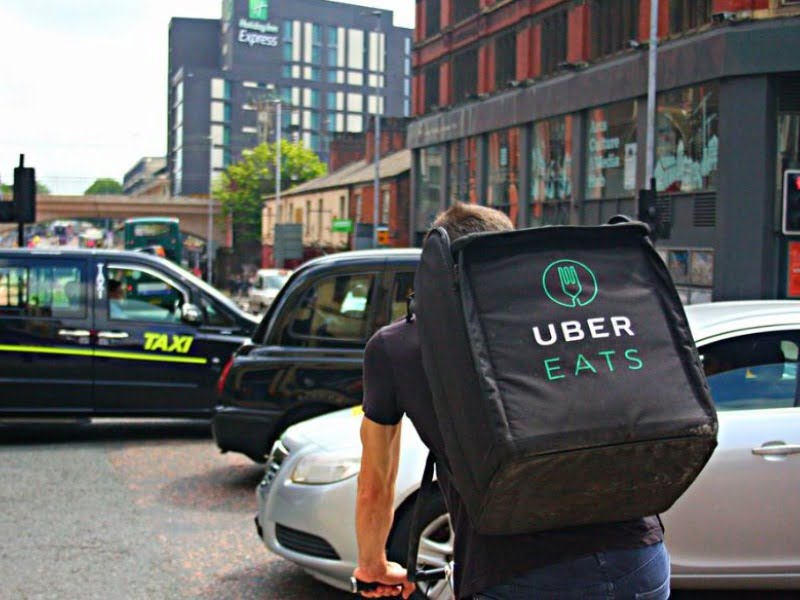Gig economy workers would get portable leave entitlements and a minimum wage as part of a significant policy pitch by Opposition Leader Anthony Albanese, which Labor will be taking to the election.
In a speech delivered in Brisbane on Wednesday night, Mr Albanese aimed to position the likely 2021 election as not a referendum on the federal government’s response to the COVID-19 pandemic, but rather a “contest between two very different visions for the future of Australia”.
Part of Labor’s vision is a significant focus on reforming the gig economy to provide more rights and entitlements to workers for big tech companies such as Uber.

The treatment of workers for these companies was put in the spotlight late last year following the deaths of five food delivery riders in the space of two months in Australia.
While the Opposition and the Transport Workers Union have been pushing for reforms and regulations at the federal level, the Coalition has largely brushed this aside and said it is a matter for state governments.
Mr Albanese’s pitch revolves around handing the Fair Work Commission the power to enforce rights and obligations for the gig economy, that would include setting minimum pay and expanding the definition of an employee.
“Labor will ensure that the independent umpire has the capacity to inquire into all forms of work and determine what rights and obligations should apply,” Mr Albanese said in the speech.
“We will do this by extending the powers of the Fair Work Commission to include employee-like forms of work, allowing the commission to make orders for minimum standards in new forms of work.”
Labor would also legislate to ensure gig economy workers get “portable” sick leave, annual leave and long service leave that can be moved across different work, which is currently denied to them by the “narrow, outdated definition of an ‘employee’”.
Mr Albanese said that gig economy workers are being “denied basic rights such as award benefits, superannuation, the right to collectively bargain and access to unfair dismissal protections”.
He said Labor would also legislate to create a “fair test” to decide when a worker can be classified as a casual, and work with state and territory governments, unions and industry on the “portable” leave policy.
The policies largely follow recommendations from the Transport Workers Union, which has been campaigning for better rights for gig economy workers for several years.
While the federal government has shown no interest in further regulations for the gig economy, a number of the states have launched inquiries into the space.
The NSW government late last year launched a taskforce to investigate whether the recent deaths of delivery riders could’ve been avoided and whether better protections are required, while the Centre for Work Health and Safety is looking into potential regulatory reforms.
The Victorian government conducted a two-year inquiry into the on-demand workforce, which recommended that the federal government take the lead on significant reforms for the gig economy, including clarifying the worker status issue, creating a new agency to facilitate streamlined support and fast-tracked resolutions and a code of conduct.
Do you know more? Contact James Riley via Email.


It’s not surprising ALP wants to push the gig economy into a rigid IR framework. That’s how the system has evolved for years, and it provides a circular path of larger union numbers/membership fees/political donations to the ALP.
It’d be disastrous for employment numbers, but that loss of job opportunities is seemingly less important than the cash.